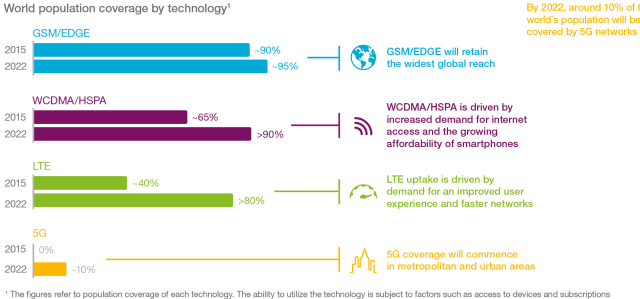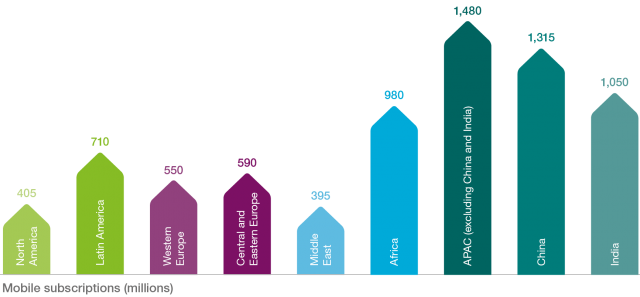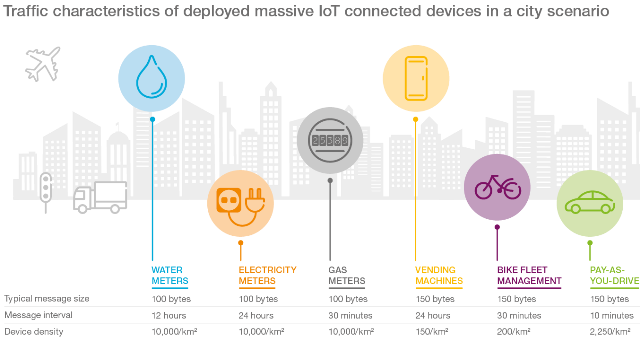
5G in the cm and mm wave bands will reach nearly $200 billion in cumulative service revenues by 2026 while LTE, LTE-A, and LTE-A Pro exceed five billion subscriptions.
“4G LTE technologies will deliver nearly $3.5 trillion in service revenues through 2026,” said Joe Hoffman, managing director and vice president at ABI Research. “The later launching 5G will then yield almost $200 billion.”
Earlier, the latest edition of the Ericsson Mobility Report forecasts that there will be 550 million 5G subscriptions in 2022. In North America, a quarter of all mobile subscriptions are forecast to be for 5G in 2022.
Asia Pacific will be the second fastest growing region for 5G subscriptions, with 10 percent of all subscriptions being 5G in 2022. From 2016 to 2022, Middle East and Africa will dramatically shift from a region with a majority of GSM/EDGE-only subscriptions, to 80 percent of all subscriptions on WCDMA/HSPA and LTE.
While mobile network operators and vendors meet current market demands with LTE-A and LTE-A Pro, pre-standard 5G millimeter wave deployments are imminent, according to a report by ABI Research.
“While the global LTE subscriber base will continue to grow in the immediate future as operators evolve to LTE-A Pro networks, it will likely soften in developed markets when 5G deployments take off,” said Khin Sandi Lynn, industry analyst at ABI Research.

In 2026, the LTE portfolio will remain the dominant mobile technology, representing more than 50 percent of worldwide mobile subscriptions, while the 5G subscriber base will grow to account for close to 5 percent of the market’s total.
 Developed markets in North America and Asia Pacific will lead the way for 5G services. U.S. mobile operators AT&T and Verizon completed field and lab testing of 5G technology and aim for pre-standard deployments in 2017.
Developed markets in North America and Asia Pacific will lead the way for 5G services. U.S. mobile operators AT&T and Verizon completed field and lab testing of 5G technology and aim for pre-standard deployments in 2017.
Telecom operators in Japan and Korea will expand their own 5G services in preparation for their upcoming Olympics. The 5G Open Trial Specification Alliance — formed by KT, NTT DOCOMO, SK Telecom, and Verizon — will also develop 5G trial activities.
Qualcomm recently announced that its Snapdragon X50 5G modem will deliver 5Gbps device downloads in the 28 GHz band. Telecom infrastructure vendors such as Ericsson, Huawei, Nokia and ZTE are signing 5G technology agreements, conducting demos, trials and preparing roadmaps to increase momentum for 5G.
Baburajan K
[email protected]





